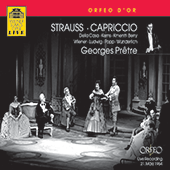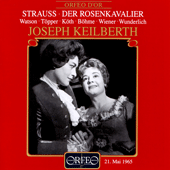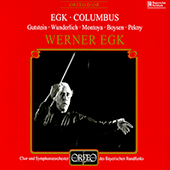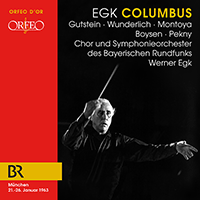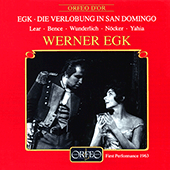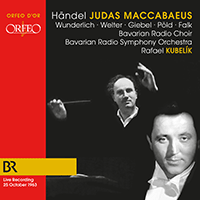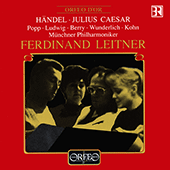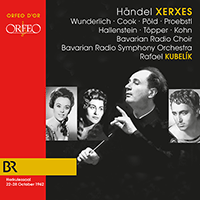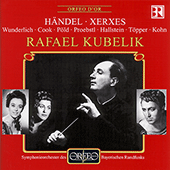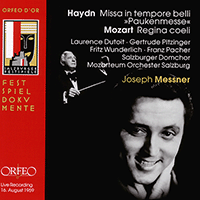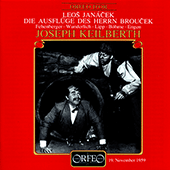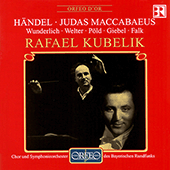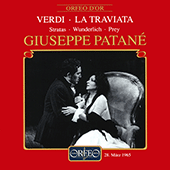Fritz Wunderlich
Although Wunderlich’s parents were both musical (his mother a violinist and his father a choirmaster), when Fritz was only five his father, unable to tolerate a combination of pressure from the local Nazi party and the effects of an old war injury, committed suicide. The family, who had for a short time run an inn, then experienced considerable material difficulties, with Fritz helping to support his mother and brother through money earned from playing the accordion and French horn in local dance bands. He also took part in local amateur operatic productions, for instance singing Peter / Hänsel und Gretel.
When Wunderlich reached employment age he worked in a bakery, where his colleagues and customers, recognizing his vocal gifts, encouraged him to undertake formal study. He won a scholarship to the Freiburg Conservatory where he financed the cost of study through his dance band work. Between 1950 and 1955 he studied voice with Margarethe von Winterfeldt, piano with Friedrich Finke and horn with Lothar Leonards, the last assisting the development of his extraordinary breath control. During the 1952–1953 season he undertook his first professional engagements, taking part in concerts in the Palatinate and singing in Bach’s Easter Oratorio at Esslingen; the following season, 1953–1954, he gave his first broadcasts, singing operetta excerpts for South West German radio, Kaiserslautern; and during 1954 he sang Tamino / Die Zauberflöte in a student production.
In 1955 Walter Erich Schäfer, intendant of the Stuttgart Opera, invited Wunderlich to join this company. During the summer he took part in a performance at the Hitzacker Music Days of Monteverdi’s Orfeo, conducted by August Wenzinger, which was subsequently recorded. He made his stage debut with the Stuttgart Opera in September 1955 as Eisslinger / Die Meistersinger von Nürnberg. The following year he substituted for Josef Traxel as Tamino, achieving great success, and took part in a new production by Wieland Wagner of Orff’s Antigonae. He also began to make commercial recordings. During 1957 he sang Ferrando / Così fan tutte for the first time at Stuttgart and made his debut with the Bavarian State Opera, Munich as Belmonte / Die Entführung aus dem Serail.
Wunderlich was by now beginning to attract international attention. He signed an exclusive contract with EMI Electrola, joined the Frankfurt Opera alongside his Stuttgart contract, sang Belmonte and Baron Kronthal / Der Wildschütz with the Stuttgart Opera at the 1958 Edinburgh Festival, and Tamino at the Aix-en-Provence Festival. His appearance at the 1959 Salzburg Festival as Henry, in a new production by Günther Rennert of Richard Strauss’s Die schweigsame Frau conducted by Karl Böhm, put him at the top of Central Europe’s tenor tree. Now in demand everywhere, he made his debut at the Vienna State Opera, singing Tamino under Böhm, and created the part of Tiresias in the premiere of Orff’s Oedipus der Tyrann at Stuttgart. The following year, 1960, he joined the Bavarian State Opera, sang Tamino at the Salzburg Festival, participated in concerts with Karajan, Klemperer and Keilberth, and sang Alfredo / Die Fledermaus for the first time at Stuttgart. During 1961, as well as being active in Munich, Stuttgart and Hamburg, he recorded Mahler’s Das Lied von der Erde with Klemperer, and made his debut at the Teatro Colón, Buenos Aires, singing Henry and Belmonte. He gave his first song recital, a form in which he was to excel, in Vienna during 1962, and sang Lensky in a televised production of Eugene Onegin from Munich.
By 1963 Wunderlich was working intensively on his song repertoire with his accompanist Hubert Giesen. He also signed a guest contract with the Vienna State Opera, where he sang Don Ottavio / Don Giovanni in a new production with Karajan conducting, and took part in the premiere of Egk’s Die Verlobung in San Domingo as part of the reopening celebrations of the National Theatre in Munich. Health problems, however, necessitated several cancellations, including appearances at the Salzburg Festival.
Having changed from EMI to Deutsche Grammophon in 1964, Wunderlich continued to record mainstream and popular repertoire, which considerably enhanced his popularity. At the Vienna Festival he sang Leukippos / Daphne under Böhm, indicating a tentative step towards heavier roles, and at the end of the year took the title role in Pfitzner’s Palestrina at the Vienna State Opera. He made his only appearance at the Royal Opera House, London during 1965, singing Don Ottavio with Kempe conducting; and the following year, 1966, sang the Count in Rossini’s Il barbiere di Siviglia in Vienna.
After appearing as Belmonte at the Salzburg Festival and Tamino at the Edinburgh Festival with the Stuttgart Company Wunderlich made what was to be his final appearance, giving a song recital at Edinburgh. Shortly afterwards he suffered a fall in a hunting lodge in the Black Forest in Germany, striking his head and never recovering consciousness.
Wunderlich left a vast and distinguished legacy of studio, ‘off-air’ and radio recordings, the great majority of which were sung in German. In all of these he is equally at home, whether in the popular, operetta, operatic, concert or song repertoires: he can be seen as the pre-eminent tenor of the post-war era. His singing was characterized by a beautiful tone, easy production and elegant phrasing across the whole tenor range, allied to an exciting vigour when required. All these factors, when partnered with his easy presence and good looks on stage, ensured for him great, if short-lived, success.
© Naxos Rights International Ltd. — David Patmore (A–Z of Singers, Naxos 8.558097-100).








